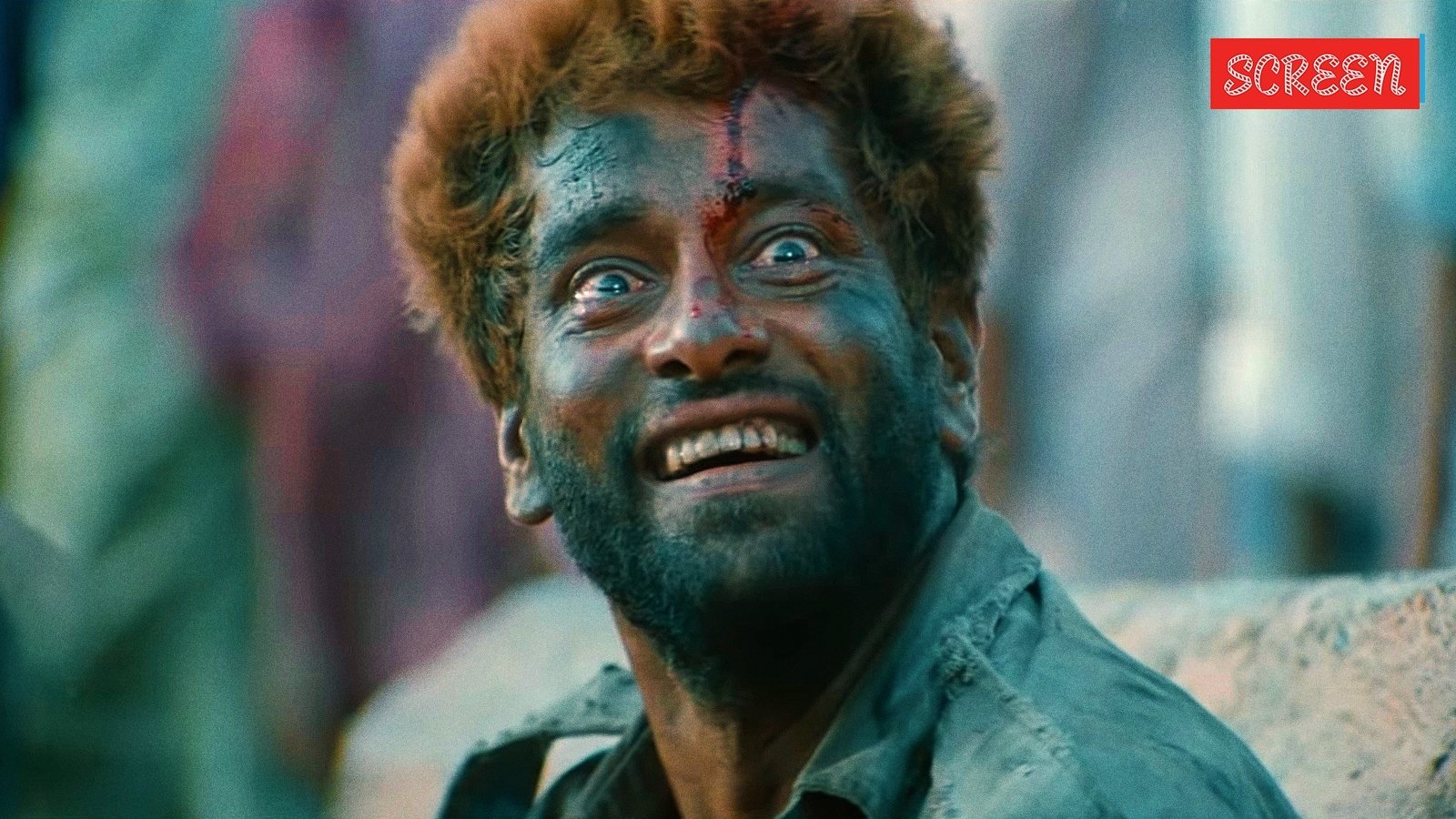Immersion is an overused word when discussing film performances, yet no other term adequately captures what Vikram achieves in Pithamagan. His portrayal of Chithan, a man raised in a graveyard, in Bala’s spectacularly sordid post-2000s Tamil classic is, for many, the role that defines him. It is not merely career-defining; it is an act of shedding the artifice of glamour and show business to inherit the trauma and mental instability of the character he embodies. Before Pithamagan, Vikram was already a formidable force, an actor of restless, almost volcanic energy often confined by the formulas of commercial cinema. But in Chithan, he channeled his talent into becoming an anchor of deep humanity in a film brimming with volatility.
Some actors use their bodies not merely as instruments of expression, but as monuments to suffering. Vikram does precisely this in Pithamagan, a film laden with painfully observed detail and grim undercurrents. He doesn’t so much deliver dialogue as he does emit guttural sounds and sudden outbursts of rage, like an animal poised on the brink of attack. His posture remains perpetually hunched and defensive, as if forever recoiling from the unbearable glare of the real world.
Pithamagan would still be a powerful film with a painful story to tell in the hands of any capable actor, for the authorial voice firmly belongs to director Bala. Yet the film’s brilliance lies in the collaboration between actor and director, their synchronization of body language and silence transforms Chithan into a living, breathing being rather than a caricature crafted for awards.
Bala’s camerawork in Pithamagan is an exercise in unforgiving scrutiny and passionate observation of his actors. He compels the viewer into extreme close-ups of Vikram’s eyes that seem at once vacant and intensely alert. In an early scene, when Chithan is taken on for work by a local marijuana dealer, his gaze keeps drifting toward his surroundings, like a child lost in a circus. Vikram infuses these digressions of the eye with just the right measure of wonder, innocence, and agitation, ensuring they never appear awkward or unmotivated.
Also Read | How Prabhas transformed into an agent of quiet power in Prashanth Neel’s Salaar
Vikram remains silent throughout the film, tasked with counterbalancing Suriya’s charismatic and often disarmingly charming turn as his newfound companion. As viewers, we are naturally drawn to Shakthi, the affable conman brought to life by Suriya, whose grounded exuberance keeps the film lively and accessible. To invest emotionally in Vikram, by contrast, requires patience and an ultimate faith in performance itself.
The interaction between these two characters, each belonging to entirely different realms of human experience, gives Vikram the opportunity to deliver some of the finest work of his career. Pithamagan is, at its core, a story about society’s discarded souls finding solace in the companionship of a man who befriends and understands them without judgment or contrived empathy.
Story continues below this ad
Chithan is a void that sucks in those around him into his orbit. You can’t help but be won over by his peculiar ticks. The way he runs with his hands juggling ahead of his body, his tiger-like prowl, or the way he moves his mouth when he feels suffocated, it’s all created from scratch with the utmost care.
His protective instinct toward those around him, especially women, is not driven by morality but by a primal, territorial loyalty: a code more animal than societal in its reflexes. Yet there are glimmers of nobility and honor in Chithan, qualities that only an actor of deep empathy could evoke. Vikram even mirrors the auditory alertness of a dog, his head perpetually raised, responding to the world through instinct.
Chithan is trapped in a world he neither understands nor is understood by. If the deep-rooted sorrow and explosive rage he evokes were misplaced, Pithamagan would be an entirely different film. Chithan becomes a pawn in a larger social game, surrounded by people who exploit his innocence, most notably the cruel Shekar, who sees him as nothing more than a freak beneath the grime. His fragile humanity is ultimately forced to submit to the whims of a materialistic world.
Vikram helps you care more deeply for a mute witness, without resorting to emotionally manipulative theatrics. He maintains the arc of the robotic Chitha with pinpoint precision, irrespective of the risk of turning in a monotonous, one-note portrayal of a mentally challenged person made to witness some unspeakable horrors.
Story continues below this ad
The slow realization that dawns in Chithan’s eyes as he watches Shakthi’s funeral pyre burn remains one of the most haunting moments in Tamil cinema. That gradual shift, from icy incomprehension to the deafening awareness of his only friend’s loss, feels less like a crafted performance and more like an instinctive act of possession, guided by raw, unbridled talent. The role earned Vikram the National Film Award for Best Actor, cementing his reputation as a performer willing to go to any length to realize a filmmaker’s vision.
Pithamagan stands as a brutal testament to the truth that great performances are not always about boisterous excess, but often about the quiet, introspective precision of emotion that borders on restraint. Chithan remains the crowning achievement of Vikram, who encountered the perfect material at the perfect moment in his career. The film endures as a reminder of what screen acting can achieve when rendered through the prism of startling authenticity and empathy.




